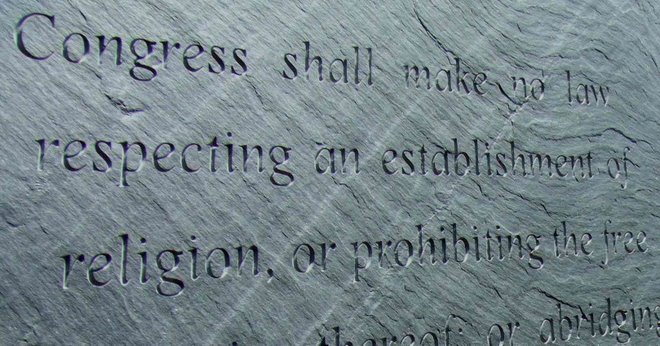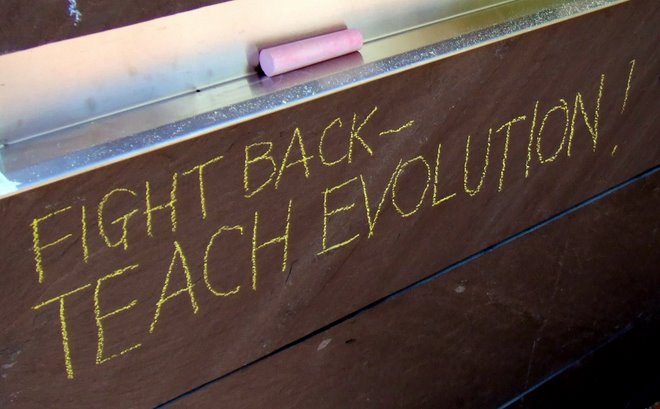The lecture is a discussion of what Diamond calls the four functions that define religion that are responsible for its evolution:
--explaining the world around us, --buttressing state authority, --rationalizing warfare, and --providing a moral code for a functioning society.
Almost all material omitted appears in very similar form in Diamond’s 2002 New York Times book review of David Sloan Wilson's Darwin's Cathedral: Evolution, Religion, and the Nature of Society. The review should therefore be read first to understand where Diamond picks up below. Ellipses, of course, mean omitted text – this was done so as not to alter meaning.]
Jared Diamond:
[From the intro:] ..It’s difficult and in fact offensive to ask about the function of our own religion; it’s easy to ask about the Sikari religion [of New Guinea] or about the beliefs of the Homeric Greeks and their many gods... Why is that religion frequently preaches murder and intolerance as, notably, Christianity and Islam have done over in the last thousand years? ...Nevertheless more than fifty percent of Americans today still invoke God to explain the human species and perhaps other species as well.
[Buttressing State Authority.] ...Religion still justifies the state. Today in many countries, in some Muslim countries, in Israel, it was the case in Italy and Japan until sixty years ago, and it still is the case in Britain and in Scandinavia which have state-supported churches. It still is partially the case in the United States. On our currency, here is a dollar bill which says “in God we trust.” That’s the national currency of our land. Our government pays for official chaplains in Congress and in the armed services. So whereas the first function of religion that I mentioned, the explanatory function, is one that I see as having decreased over time and in some societies disappeared over the last 10,000 years, this second function of promoting support of state government is one that originated in the last 7500 years and increased over that time, and then in modern times has been decreasing as at least some modern state governments figured out to command loyalty from its citizens without claiming that the president is divinely descended from God.
[Providing Moral Precepts.] ...We in Judeo-Christian society and in Islamic society take for granted this association of religion with moral precepts, and so it might surprise us to learn that there is much less or none of this association with moral precepts in tribal societies, where instead moral precepts depend upon your personal relationships. If you violate your obligation to other people, then you’re under social pressure from fellow tribespeople... In a tribal society, if you meet a stranger... the routine response is to try to kill the stranger or run away so the stranger won’t kill you...
Within the last ten thousand years for the first time we encountered the problem of meeting strangers who are members of your own society, because your own society was too numerous for you to know by name and relations to everybody else... So all chiefdoms in early states faced this problem of how to get people within the society to maintain peaceful relationships with strangers, a problem that just didn’t exist in tribal society. The solution was standardized, organized religions which proclaimed the rules of behavior for society such as the Ten Commandments.
...In modern state societies this third function of religion, namely moral precepts have been partially superceded....atheists and believers don’t kill because societal values have been instilled into them and because they fear punishment. But nevertheless, religious law is still a force in some Muslim societies today. So here we have a function of religion, the function of moral precepts, which I think is surprising to us members of state societies, was not an important function in tribal societies and has increased in the first ten thousand years and is still strong in some but not all state societies today.
...Some of the worst slaughters in recorded history were committed by European Christians against non-European non-Christans, and there also have been large-scale slaughters committed by Muslims against non-Muslims. That tradition of continuing adherents of all those false religions continues today, but more recently European states have emphasized ethnic reasons over religious reasons for killing others. For example, while the Nazis killed Jews, they also killed gypsies. So here we have a function of religion that has increased over the last 7000 years with state societies and persists too, but perhaps is less marked today than it was thousands of years...
...One can then say that, from a social point of view, if we were an extraterrestrial from outer space who came to Earth and was not predisposed to believe that any religion has true precepts, the extraterrestrial would argue that the success of a religion as gauged by the number of its adherents is unrelated to the truth of the precepts of the religion, and depends on the precepts of the religion only insofar as those precepts favor survival of the adherents of the religion or favor a smooth functioning of the society, or favor converting adherents of competing religions or favor killing members of other religions.
...But I’d like to say in conclusion, in case this social reasoning about religion gives you offense, that these proposed functions are of course debated and even insofar as they might have some value, they certainly aren’t the whole explanation for religions. We sing in Handel’s Messiah or we listen to Handel’s Messiah, not just because Handel’s Messiah motivates us to go out and kill the heathen and to take care of our own sick people, but also because Handel’s Messiah moves us and we find it beautiful.
[Selected questions that most seemed to go beyond points already made in his review:]
Q: Dr. Diamond, in your discussion I’ve noticed you’ve focused more on the transcendent aspects of religion, the external. I was wondering if you’d comment on the more immanent experiences that tie people to their religious faiths, how people experience religion individually: the mystical experiences that they attribute also to their religious belief system.
A: I don’t know -- I haven’t thought about that. [Smiling]. I don’t have anything intelligent to say at the moment; I would have to think at leisure about it. [Laughter].
Q: You’ve traced a number of characteristics of religion through time. Just to get yourself in a bit more trouble, would you like to speculate on those characteristics in the future?
A: By extrapolation from the recent past, I would guess that the explanatory function of religion will continue to decrease as science increases. The functions of religion in holding society together may continue to decrease, but not necessarily disappear. The function of religion in motivating warfare -- we now have other excuses for warfare today, but it doesn’t look as if the war-motivating function of religion will disappear in the near future. And those would be my guesses for the next thirty years, but I would hesitate to make any guesses beyond the next thirty years.
Q: I know in your talk that you were talking about a very long timescale, the last 10,000 years, but it seems to me that even in the last couple of generations the role of religion or the function of religion has changed a lot in the world. Can you maybe comment on that? Why do you think religion is rising at this stage after we had a lower religious time a couple of generations ago?
A: Over the last few decades it may appear that religion is rising again. To me it seems much more of a mixed bag. In some areas, yes, religion is rising. In other areas religion is really is crashing. For instance, I lived in Europe in the late 1950s and early 1960s, and in northern Europe and northwestern Europe, the state religions—the Anglican Church in the UK and the state religion in Scandinavia--are much weaker now than they were even a generation or two ago. But there are also conspicuous examples of societies where religion seems to be a stronger motivating force. I would hesitate to conclude that for the world as a whole religion has become stronger rather than weaker; instead it seems to me more of a patchwork over recent decades.
Q: Would you consider science a religion?
A: No, I would not consider science a religion. Science is something but it doesn’t share these characteristics. Science does have explanation and from the point of view of religion one would say that science has usurped the function of religion. Science by and large does not teach moral precepts. Science by and large is not the force that tells us to avoid conflict within our society and science for the most part is not the force that tells us to go conquer people next door. So by my definition of religion I do not consider science a religion.
Q: With agnosticism, atheism, secularism, religion – these sometimes have commonality in moral codes. What do you think is the source of our moral codes now and in the future?
A: A scientist or a social scientist or a political scientist or an extraterrestrial from outer space would say the source of a moral code is the requirement for a society to function smoothly without falling apart. And you need a moral code in order to do that. Religions would say there’s more to it than that. But ultimately, I would say that moral codes have a political and social function, that without a moral code a society is going to destroy itself, and societies HAVE destroyed themselves.
Q: Why do you think it’s so difficult to look at religions from an objective point of view?
A: Because religious beliefs are ones that we feel passionately about, and they’re unprovable – well, many people would consider them unprovable. If something can be proved or refuted, we can discuss it dispassionately. One can discuss dispassionately whether the Watson-Crick model of DNA is valid, because if it is valid you’ve got the evidence and if not you don’t, you’re caught up in the evidence against it. But religion is hard to prove so that’s the reason we feel passionate about it. And also religion is frequently used as a justification for killing people of other religions and so if you’re going to have a religious argument the conclusion of the argument may be “You’re wrong and therefore you deserve to be killed.” Those are some of the reasons for passion about religion.
Q: You mentioned that without moral codes society destroy themselves... animals don’t have moral codes and they have survived for millions of years.
A: Animals don’t have moral codes but also animals don’t have the moral dilemmas that we humans have. In New Guinea, tribal societies function with largely a relationship-based moral code. But chimpanzee societies or lion societies also function with a relationship-based moral code. In a chimpanzee society, chimpanzee brothers do not kill each other. They do kill genetically unrelated males; they do not kill females, genetically unrelated or the same society. They may accept females from outside society but not males from outside society, so chimpanzees have what one could call a moral code, but it’s not a religious moral code.
Q: Is religion indispensable?
A: My Japanese friends would say no, religion isn’t indispensable. In Japan one can argue about whether Shintoism is a religion or a set of social beliefs, but many people would argue that the Japanese are as areligious as any people in the world. Nevertheless it’s an extremely effectively functioning society. So that would be an argument that no, you don’t need religion for a successfully functioning society. But you’ve got to have something else; you certainly have to have social values and a moral code to keep peace within the society.
Q: You stated earlier that one of the reasons we have religion is to establish moral codes and such, and you also said that people in modern societies who consider themselves to be atheistic or agnostic continue to follow those moral codes because they’ve been raised in a society that teaches them that killing is bad or stealing is bad. Without the evolution of religion, would those moral codes have evolved? Is there some inherency in them in human nature? And, just out of curiosity, are YOU a religious person? [Laughter].
A: In reverse order, the second question: really not. And the first question, in the absence of religions would moral codes have evolved... that’s one of those impossible experiments – it didn’t happen. On the other hand, it’s suspicious that complex human societies developed independently in many different parts of the world. In Central America and in South America, state-level societies evolved, and state-level society evolved in China and state-level societies evolved in the Fertile Crescent, they evolved in Africa... and yet all these independent evolutions of complex societies involved religions that buttressed the authority of the state-level society. So that suggests that the answer to your question is that one observes that wherever there have been developments of complex societies in the last 5,000 years, it has been accompanied by religion, and therefore it’s been necessary. We don’t have a counterexample to suggest that something else would have been possible.
Q: [Unintelligible]













No comments:
Post a Comment